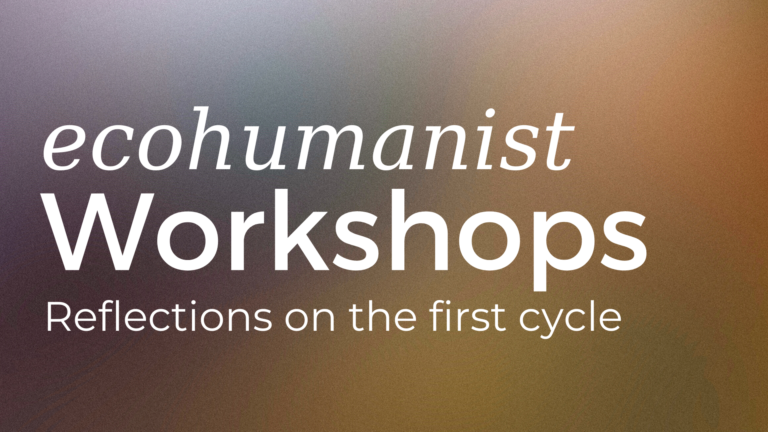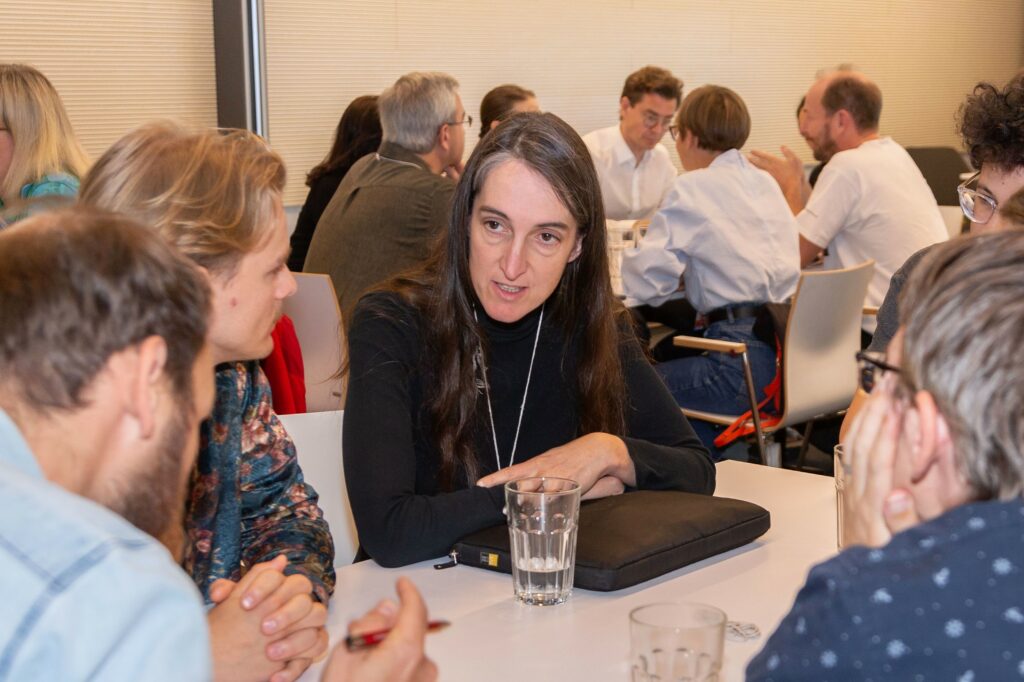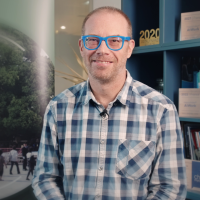
“[Global policy for biodiversity] is far from a vision required by science. We are in a simplifying, partial and culturally marked vision, which does not appear to be very effective.” argued one of our guests in a recent webinar on the relationship between science and policy. And that’s our point. We ecohumanists at RePlanet France, are looking for answers based on the multidisciplinarity and richness of science. »
February marked a symbolic milestone in the activities pursued by our branch of RePlanet here in France. We have concluded the first cycle of workshops dedicated to overarching objectives in the field of environmental action: human development, flourishing biodiversity and climate stabilisation. What are the workshops and why do they matter?

« We are committed to the capacity for dialogue between different disciplines, so that we can build and promote solutions based on what we know, without excluding any scientific field. » says Caroline, one of the French ecohumanists. We’ve observed decades of climate and biodiversity actions that fail to properly address global environmental issues whilst supporting human basic needs. Why? Because narrow visions have mainly led to simplistic policy approaches. In other words, the diversity and richness of science hasn’t been considered fairly.
We have decided to listen to the scientific community first and prepare a solid ground for action, that can also be useful to the whole RePlanet community. We have created a scheme – the workshops – where scientists and experts in the field discuss the state of the art, explore potentialities, limits and set-backs of potential solutions to achieve climate stabilisation, revive biodiversity, and foster human development.
Each workshop is an opportunity for three to five researchers to freely discuss[1] the most pressing issues regarding different fields of climate action. For instance, the workshop on climate hosted a researcher on climate modelling, a climatologist, and a specialist of carbon cycles. Feedbacks from the first nine participants show the relevance of this format.
“We were able to discuss in a very open, casual way, on a certain number of subjects related to the climate and the solutions that we could implement. Normally we [the researchers] discuss a lot on these topics, but here the format is a little different since we give ourselves the time, two and a half hours, to discuss a certain number of subjects with colleagues who are in somewhat related disciplines but with whom we can understand each other since we share the same vocabulary”, said Dr. Oliver Boucher, expert in climate modelling and researcher at the French National Centre for Scientific Research (CNRS).

Each workshop is followed by the conclusions and detailed report on the outcomes. Our findings are shared with the general public and they will serve in the future for reflecting on solutions that are worth being supported.
What are the main outcomes of these first three workshops?
On climate, the objective is clear. We must do everything possible to keep global warming to no more than +2°C by 2100, in line with the commitment made in the Paris Agreement. At this level, negative impacts will already be noticeable. Beyond that, the consequences of warming will be ever more severe; and every tenth of a degree counts. Beyond all the measures being considered to reduce fossil fuel use, active carbon removal will be inevitable. Technological (low and high) and behavioural innovations will have to be implemented on the appropriate scale.

Ecosystems are constantly evolving and evolution takes time: that shall be taken into account while designing biodiversity strategies. Long term policies are needed to address the biodiversity loss properly and effectively. Actions should be designed to recreate or preserve a functional evolutionary potential. It is therefore imperative to move away from an anthropocentric -and static- view to constructive action. People don’t see themselves as part of nature. Particularly in France we have identified the existence of a gap between human and nature. People reject the unpredictable part of nature. They also fail to see themselves as part of biodiversity. Efforts to re-establish the lost link between humans and nature are also an opportunity to see humans become a real lever of action for a flourishing biodiversity.
Education is key for long and healthy living, assuming food and shelter is provided. The workshop dedicated to human development focused mainly on education and health. Many education systems fail to recognise different social backgrounds of the pupils and thus to provide adapted learning environment that would lead to empowerment and optimal career paths. Education is also paramount to develop a critical mind able to face fake news and science denialism. Moreover, education and health policies need a long-term perspective, particularly in the field of prevention.
Competition for land use appears to be a major point of tension between climate, biodiversity, and human development objectives. This will be a constant point of vigilance in the continuation of our workshops aimed at identifying solutions. The detailed conclusions from our workshops are available in French on our website.
The next cycle of workshops to begin in spring 2023 is dedicated to “mobility and land management“. We plan to explore a set of solutions aimed at reducing the emissions from transport, concentrating cities, and bringing more nature into and/or next to them whilst satisfying the needs for an inclusive and healthy mobility. A cycle about food, linked to the ReBoot Food campaing, is also in works.
RePlanet France addresses the development of a critical mind through a series of seminars and podcasts “Science and Society”. We will launch a spin-off on “Human and Nature” in the second half of 2023: stay tuned!
[1] According to the Chatham House Rule